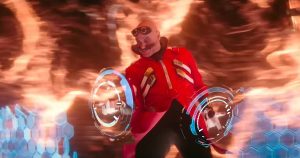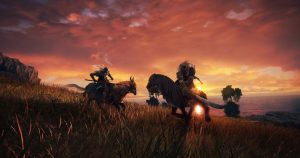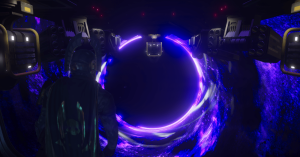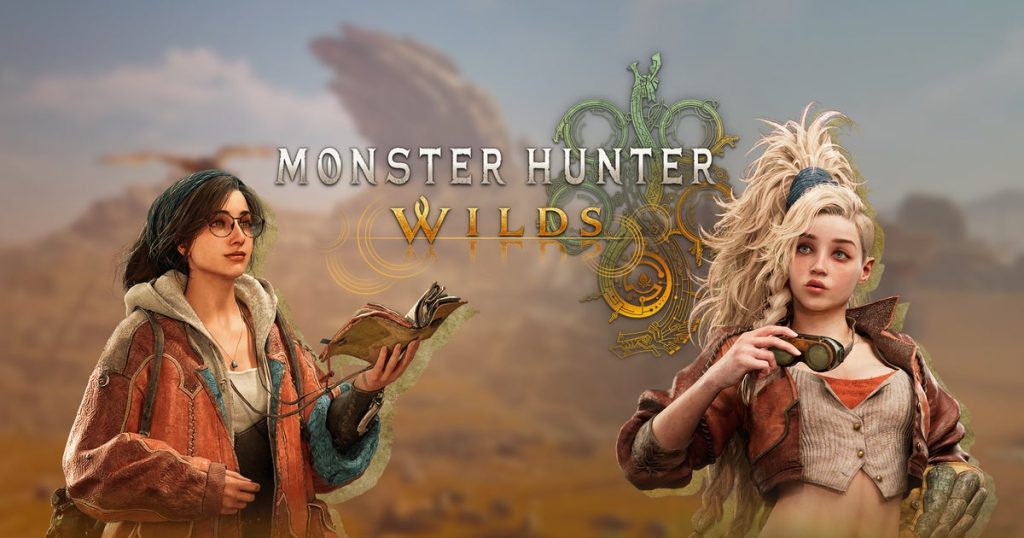
As we’ve previously reported, Gamescom 2024 is the first place that the public can play Monster Hunter Wilds. Luckily for me, then, that I was pretty much first in line to play the public demo of the game – and I’m here to tell you that the combat flow is even faster than it was in Monster Hunter World, and even more dynamic than it was in Monster Hunter Rise.
The main difference series veterans are going to notice here is the additional beat that comes to the flow of combat in terms of inflicting wounds on monsters. In the past, your fights tend to follow a fairly strict flowchart: encounter a monster, attack it, break a part or two, pursue it to a new locale, break another part, pursue it again, and capture or slay. I’m obviously boiling things down to their most basic, there, but that’s the gist.
In Wilds, there’s a new mechanic that Capcom peppers into this familiar pattern that is much more reactive and dynamic than what the series has done before: wounds. Before you break a monster part, you can cause wounds to appear on it by focusing your attacks on one area. The single-player demo saw us take on the Chutacabra (similar to a Tetsucabra, but less rocky and more ogre-like), and since I’m a Sword and Shield user, I was tanking the front part of the body and rolling to attack its forelegs and face.
Within 20 seconds, I noticed some wounds had opened up around these weak spots. A prompt came up telling me to enter Focus Mode with L2 – this game’s big mechanical addition – and hit R1 to perform a special attack that plunged my sword into the monster’s face. This did a huge amount of damage, knocked it back, and granted me a Chutacabra material (one that I didn’t have to carve or pick up off the floor, notably).
In terms of combat, this results in a much more responsive and aggressive option for players to pursue, if they’re keen enough to get into the fray. Previously, stunning monsters, knocking them down, or breaking parts would be sure-fire ways to give you a nice big window of opportunity to lay on some massive damage – but now wounding them allows for quicker, scrappier methods of pot-shotting huge amounts of damage.
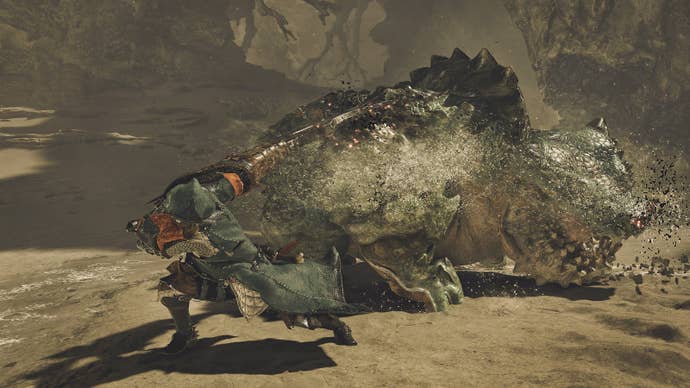
I didn’t get to experiment too much with different weapon types, but I imagine certain monsters will react different ways to certain arms – meaning organising with your team and choosing who gets to rip off the various scabs you inflict will be crucial in longer, more tense fights.
It seems that inflicting wounds and entering Focus mode to take advantage of them also helps weaken monster parts, making them prime for a breaking once you’ve inflicted the damage you want. From what I could see on the Chutacabra, too, it seems areas of the body that can’t be broken (the flank, in this case) can also be wounded, meaning that even if you’re not attacking critically important bits of the beast, you’ll make progress in weakening the monster overall.
It just gives more texture to the fights, in my opinion. It gives players more goals to work towards, and adds a whole little mini-flowchart into the overall pattern that has made Monster Hunter so appealing over four console generations (and counting).
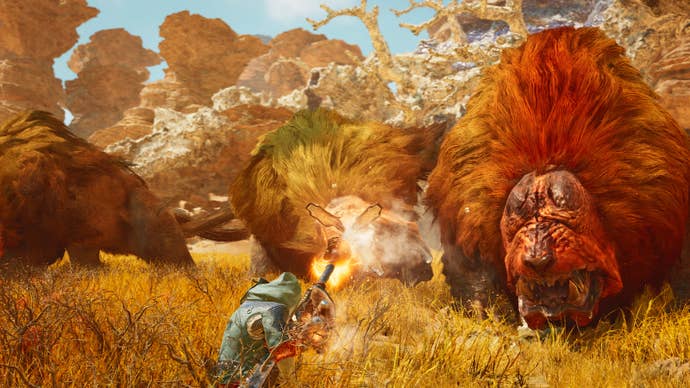
It also raises questions for me about the cadence of weapon and armour upgrades; I inflicted and broke nine wounds (roughly) during my fight – and got a material for each. Does that mean we’re going to sail through the upgrade tree quicker, or does it mean that Capcom has expedited the gear upgrade system to some degree? It remains to be seen.
TL;DR? Monster Hunter Wilds is good. The combat feels scrappier and more in-your-face than ever before, with more tools at your disposal to mess up your prey and more control in your hands to make you feel like a true superhero with your weapon once you’ve got your movement and strings down. This is seriously going to be something special, and I cannot wait to play more.
Monster Hunter Wilds is set to launch on Xbox Series X/S, PS5, and PC in 2025. Check out the latest trailer here.








